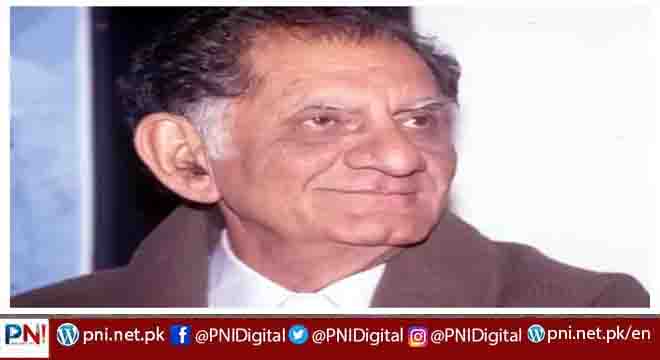ISLAMABAD, March 30 (Online):The biggest hits songs of Hindi cinema were written by the lyricist par excellence – Anand Bakshi. Unlike the other great lyricists of Bollywood like Sahir Ludhianvi, Majrooh Sultanpuri, Shakeel Badayuni, Javed Akhtar, Bakshi was predominantly a film lyricist who understood the dynamics of a film song better than any other major lyric writer of Hindi cinema.
Bakshi’s record of chartbusters is staggering: Roop Tera Mastana in Aradhana, Bindiya Chamkegi in Do Raaste, Oh Maa Oh Maa Tu Kitni Achhi Hai in Raja Aur Runk, Yeh Sham Mastani in Kati Patang, Chingari Koi Bhadke (Amar Prem), Shaesha Ho Ya Dil Ho in Ae Watan Tere Liye (Karma), the list is endless.
Anand Bakshi remains the most successful lyricist of Hindi cinema. He came to Hindi cinema in 1956 but found real success as a lyricist in 1965 with Jab Jab Phool Khile in which every song composed by Kalyanji-Anandji from Yeh Samaa Samaa Hai Yeh Pyar Ka to Pardesiyon Se Na Aankhiya Milana was a superhit.
It was composer Kalyanji-Anandji who introduced Bakshi to Lata Mangeshkar.
She remembered him as a poet of many talents who composed many superhit songs credited to professional composers. Speaking about some of the songs ghost-composed by Anand Bakhi Lataji had said, “When Bakshi saab never spoke about the songs he had ghost-composed why should I?”
Anand Bakshi had a storehouse of Punjabi numbers from his childhood. Many of the superhit Punjabi-styled songs he wrote were secretly composed by him. He had a vast knowledge of music and songs. In fact he was keen to become a singer and had sung a duet Baghon Mein Bahaar Ayee with Lata Mangeshkar for the film Mome Ki Gudiya
Apparently, Bakshi was unhappy for his lyrics not being acknowledged for their poetic quality. Bakshi was a lyricist first, then a poet. He understood the requirement of film lyrics better than any other lyricist.
The songs had to be integrated into the script. Filmmakers like Raj Kapoor, Raj Khosla and Subhash Ghai would narrate their screenplays to Bakshi who would immediately start writing out the songs into their screenplays.
People didn’t seem to realize that his simple words conveyed the most profound truth about existence. Sari Duniya Ka Bojh Hum Uthatay Hain Log Aate Hain Log Jaate Hain Hum Wohi Pe Khade Reh Jaaate Hain in Manmohan Desai’s Coolie or Zindagi Ke Safar Mein Guzar Jaate Hain Jo Muqaam Woh Phir Nahin Aate from Aap Ki Kasam. These were songs which expressed a profound truth about life.
It was indeed remarkable how much Bakshi understood the film song. When he used poetry as a starting point to his lyrics, he would acknowledge the source within the song, for example the song Beshaq Mandir-Masjid Todo Bulleshah Yeh Kehta Par Pyar Bhara Dil Kabhi Na Todo in Raj Kapoor’s Bobby, Bakshi acknowledged the contribution of Bulleshah.
In Aditya Chopra’s historic blockbuster Dilwale Dulhaniya Le Jayenge the opening two lines of the song Mehndi Lagake Ke Rakhna—Yeh Kudiyan Nashe Di Pudiya, Yeh Munde Gali De Gunde – was not only written by Bakshi but also composed by him in one sitting on Yashji’s request. Yash Chopra wanted Shah Rukh’s entry in the song to be done to the accompaniment of the special two lines. Anand Bakshi wrote and composed Shah Rukh’s opening.
The rest of the song was composed by Jatin-Lalit.
Bakshi wrote a song for any situation in a jiffy. If he would call the music composer to his home at 4.30 pm, they would have the words for the entire song ready by 5.30 pm, when Bakshi went for his walk. For him writing the lyrics for a song was like having breakfast.
Anand Bakshi didn’t like to write lyrics to pre-composed tunes. While he would be conversing with people, his mind was constantly writing songs. He would often think of the words along with the tune, which he would share with the composer. He was constantly in creative action. His quest for a language that jelled perfectly with the mood of Hindi cinema was endless.
Anand Bakshi was not just omnipresent in cinema his lyrics defined the Hindi film song neatly, honestly and poetically without talking down to the public.








